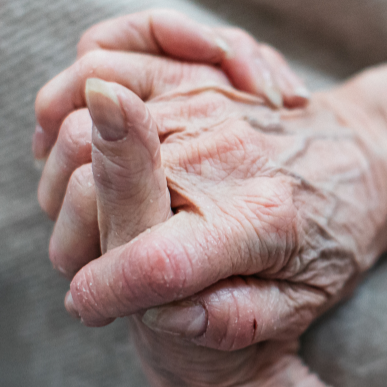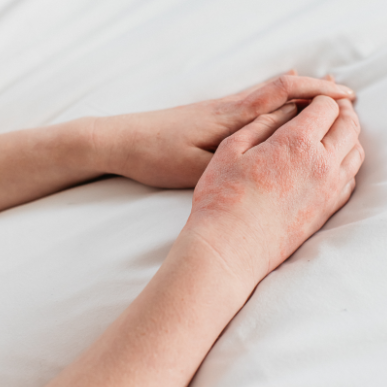Symptoms of Eczema
Some people will only have small patches of skin affected, while others may have large areas of the body covered in painful skin that constantly itches. People who live with eczema can have times when the condition seems barely noticeable and times when symptoms severely impact quality of life.2
 The following are common symptoms:2,3
The following are common symptoms:2,3
- Dry itchy skin
- A rash that can appear red on pale skin or darker brown, purple or grey on dark skin
- Intense itching
- Rough, leathery or scaly patches of skin
- Redness and inflammation
- Thickened skin
- Swelling
- Skin soreness and pain
- Cracked skin that can be oozing or crusty
- Skin sensitivity to the environment, such as soaps, detergents and lotions, certain types of clothing, the weather, pollen and other allergens
- Skin that can be raw and bleeding due to scratching
If you have any of the following symptoms, you may have an infection and should speak to a doctor as soon as possible:2
- High temperature / fever
- Generally feeling unwell
- Oozing skin
- Yellow crust
- Pus-filled blisters
Because of the discomfort and pain of eczema, and its visibility on the body, it can also affect mental health, including: 2, 4, 5
- Disrupted sleep
- Loss of productivity
- Missed days at work
- Lower self-esteem
- Anxiety
- Depression
Getting diagnosed
Eczema should always be diagnosed by a doctor as they will want to rule other dry skin conditions or causes such as a food allergy. They will usually be able to diagnose you by looking at the affected areas of skin and asking a few questions. Eczema is more likely in those with a family history of asthma or hay fever, so they will ask you about your family health as part of the appointment.
If your doctor diagnoses eczema, don’t worry – while there is no cure, there are plenty of things you can do for the treatment of eczema, to help reduce the itching and soothe the skin. Many treatments, including Cetraben are available over the counter at the pharmacist or in Boots, Lloyds Pharmacy and Tesco stores nationwide.
Find out more about treating eczema and triggers to watch out for, here.




